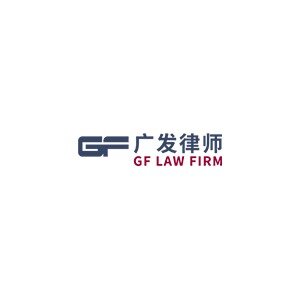Best Appeal Lawyers in Hangzhou
Share your needs with us, get contacted by law firms.
Free. Takes 2 min.
List of the best lawyers in Hangzhou, China
About Appeal Law in Hangzhou, China
Hangzhou, like other cities in China, follows the national legal system for appeals, which is primarily based on the Civil Procedure Law and Criminal Procedure Law of the People's Republic of China. Appeal law in Hangzhou allows parties in a legal dispute the right to challenge the decision of a lower court by taking the matter to a higher court. In civil cases, appeals must be filed within 15 days after receiving the court's decision, while in criminal cases, the time limit is 10 days. The appeal process involves submitting a written appeal to the appropriate higher court, which will then review the case's facts, evidence, and application of the law.
Why You May Need a Lawyer
There are several situations when an individual or entity in Hangzhou may require legal help in appeal. If you believe that the court's decision was based on incorrect facts, evidence was ignored, or the law was applied improperly, you may want to file an appeal. In criminal cases, if a defendant feels the sentence is too harsh or if there have been procedural mistakes, they might seek an appeal. In civil cases, a party dissatisfied with the outcome regarding the settlement of disputes or the enforcement of rights may want a lawyer to help them navigate the appeal process.
Local Laws Overview
When dealing with appeals in Hangzhou, it's crucial to have a good grasp of the national laws since China’s legal system is unified. However, local judicial practices may influence the procedure as different regions may have specific guidelines. The second-instance court is usually the final arbiter, as per Chinese laws, yet supervision and retrial procedures can appeal its judgment. The People's Court at various levels, including Basic People's Court, Intermediate People's Court, High People's Court, and the Supreme People's Court, handles appeals in ascending order of hierarchy. The severity and complexity of a case typically determine which court will manage it at first instance.
Frequently Asked Questions
What is the time limit to file an appeal in Hangzhou?
In civil cases, you have 15 days from the date of receiving the initial court decision to file an appeal. For criminal cases, the limit is 10 days.
Can I represent myself during the appeal, or must I hire a lawyer?
While you are allowed to represent yourself, due to the complexity of legal procedures, it is highly recommended to hire a lawyer with experience in appeals.
What are the chances my appeal will be successful?
The success of an appeal depends on various factors, including the merits of your case and whether or not there were legal errors in the initial trial. There are no guarantees of success in legal matters.
Will the higher court rehear all the evidence?
The higher court will review evidence presented in the initial trial but does not usually rehear evidence unless there are exceptional circumstances.
Are there any fees associated with filing an appeal?
Yes, there are typically court fees associated with filing an appeal, and the amount can vary depending on the case.
How long does the appeal process take in Hangzhou?
The duration of the appeal process can vary widely depending on the complexity of the case and the court's workload. It can range from a few months to over a year.
Can an appeal result in a worse outcome than the original trial?
While rare, it is possible for an appeal to result in a worse outcome than the original judgment, especially in criminal cases where the prosecution may also appeal.
Will the appellate court provide a lawyer if I can't afford one?
In certain cases, such as those involving the death penalty or immediate imprisonment, the state may appoint a lawyer if you can't afford one.
What is the role of the Supreme People's Court in appeals?
The Supreme People's Court is the highest judicial body in China and has the power to review appeals in cases of significant importance either as to the application of law or social impact.
Can I appeal to the Supreme People's Court directly?
Normally, you must go through the entire appeals process before the lower courts. Only under exceptional circumstances can cases be brought directly to the Supreme People's Court.
Additional Resources
For those seeking legal advice in the field of Appeal in Hangzhou, resources such as the Hangzhou Intermediate People's Court, legal aid services provided by the Hangzhou Justice Bureau, and local law firms with expertise in appeals can be incredibly beneficial. Additionally, national bodies like the China Law Society may also provide guidance and information.
Next Steps
If you require legal assistance in appealing a court decision in Hangzhou, the first step is to consult with a qualified lawyer who specializes in the type of case you are dealing with. They can help you understand your legal rights, the likelihood of success on appeal, and the nuances of relevant laws and procedures. Time is of the essence in legal appeals, so it's paramount to act promptly and secure the necessary legal support to ensure that your appeal is filed within the statutory deadline.
Lawzana helps you find the best lawyers and law firms in Hangzhou through a curated and pre-screened list of qualified legal professionals. Our platform offers rankings and detailed profiles of attorneys and law firms, allowing you to compare based on practice areas, including Appeal, experience, and client feedback.
Each profile includes a description of the firm's areas of practice, client reviews, team members and partners, year of establishment, spoken languages, office locations, contact information, social media presence, and any published articles or resources. Most firms on our platform speak English and are experienced in both local and international legal matters.
Get a quote from top-rated law firms in Hangzhou, China — quickly, securely, and without unnecessary hassle.
Disclaimer:
The information provided on this page is for general informational purposes only and does not constitute legal advice. While we strive to ensure the accuracy and relevance of the content, legal information may change over time, and interpretations of the law can vary. You should always consult with a qualified legal professional for advice specific to your situation.
We disclaim all liability for actions taken or not taken based on the content of this page. If you believe any information is incorrect or outdated, please contact us, and we will review and update it where appropriate.












